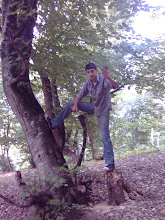 Hard rock and heavy metal
Hard rock and heavy metal A second wave of British and American rock bands became popular during the early 1970s. Bands such as AC/DC, Grand Funk Railroad, The Rolling Stones, Led Zeppelin, Deep Purple, Queen, Alice Cooper, Judas Priest, Status Quo,
Aerosmith, Black Sabbath, Kiss and Uriah Heep played highly amplified, guitar-driven hard rock. The genre was marked with aggressive, hard driven sounds. As the decade progressed, bands began incorporating different sounds into their music such as the use of synthesizers and using influences from progressive rock and disco in their records. Although it remained popular throughout the decade, music critics overwhelmingly disliked the hard rock genre. This began to change in 1978 following the release of Van Halen's self-titled debut album. The album helped to usher in an era of more commercialized rock and roll, based out of Los Angeles, California. After the glam side of metal started to end, bands like Metallica, Slayer, Megadeth, and Anthrax returned to the original metal scene.
Punk rockAerosmith, Black Sabbath, Kiss and Uriah Heep played highly amplified, guitar-driven hard rock. The genre was marked with aggressive, hard driven sounds. As the decade progressed, bands began incorporating different sounds into their music such as the use of synthesizers and using influences from progressive rock and disco in their records. Although it remained popular throughout the decade, music critics overwhelmingly disliked the hard rock genre. This began to change in 1978 following the release of Van Halen's self-titled debut album. The album helped to usher in an era of more commercialized rock and roll, based out of Los Angeles, California. After the glam side of metal started to end, bands like Metallica, Slayer, Megadeth, and Anthrax returned to the original metal scene.

Punk rock developed between 1974 and 1976 in the United States, the United Kingdom, and Australia. Rooted in garage rock and other forms of what is now known as protopunk music, punk rock bands eschewed the perceived excesses of mainstream 1970s rock. They created fast, hard-edged music, typically with short songs, stripped-down instrumentation, and often political, anti-establishment lyrics. Punk embraces a DIY (do it yourself) ethic, with many bands self-producing their recordings and distributing them through informal channels.
By late 1976, acts such as the Ramones and Patti Smith, in New York City, and the Sex Pistols and The Clash, in London, were recognized as the vanguard of a new musical movement. The following year saw punk rock spreading around the world. Punk quickly, though briefly, became a major cultural phenomenon in the United Kingdom. For the most part, punk took root in local scenes that tended to reject association with the mainstream. An associated punk subculture emerged, expressing youthful rebellion and characterized by distinctive clothing styles and a variety of anti-authoritarian ideologies.
By the beginning of the 1980s, faster, more aggressive styles such as hardcore and Oi! had become the predominant mode of punk rock. Musicians identifying with or inspired by punk also pursued a broad range of other variations, giving rise to post-punk and the alternative rock movement.
Since punk rock's initial popularity in the 1970s and the renewed interest created by the punk revival of the 1990s, punk rock continues to have a strong underground cult following. This has resulted in several evolved strains of hardcore punk, such as D-beat (a distortion-heavy subgenre influenced by the UK band Discharge), anarcho-punk (such as Crass), grindcore (such as Napalm Death), and crust punk.
 New Wave of British Heavy Metal
New Wave of British Heavy MetalThe New Wave of British Heavy Metal (frequently abbreviated as NWOBHM) was a heavy metal music movement that started in the late 1970s, in Britain, and achieved some international attention by the early 1980s. The era developed as a reaction in part to the decline of early heavy metal bands such as Deep Purple, Led Zeppelin, Black Sabbath and Judas Priest. NWOBHM bands toned down the blues influences of earlier acts, increased the tempo, and adopted a "tougher" sound, taking a more hardcore approach to its music. The era is considered to be a main foundation for heavy metal sub-genres with acts such as Metallica citing NWOBHM bands like Diamond Head and Motörhead as a major influence on their musical style.[11]
The early movement was associated with acts such as: Iron Maiden, Saxon, Motörhead, Def Leppard, Angel Witch, Tygers of Pan Tang, Blitzkrieg, Avenger, Sweet Savage, Girlschool, Jaguar, Demon, Diamond Head, Samson and Tank, among others. The image of bands such as Saxon (long hair, denim jackets, leather and chains) would later become synonymous with heavy metal as a whole during the 1980s. Some bands, although conceived during this era, saw success on an underground scale, as was the case with Venom and Quartz.

Hello Orkhan. Orkhan I do not like Rock i like lirik musics.
ОтветитьУдалитьHi again Orkhan!I love Rock too!I'm listening Alt. Rock and Gothic Rock...:)
ОтветитьУдалитьHello!!!My name is Anet!!!I'm from Armenia!!!I like ROCK too!!!:)Enter my blog and see the bands that I like most of all!!!:)))
ОтветитьУдалить